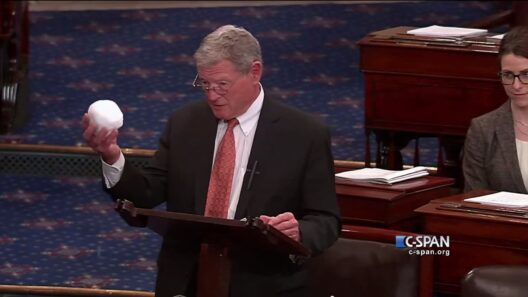Energy consumption is a fundamental pillar of modern civilization, propelling economies and enhancing quality of life. However, this progress comes at a significant environmental cost. The nexus between energy consumption and climate change is irrefutable. As global temperatures rise, so do the stakes in how we harness and utilize energy. Understanding how these two elements interconnect is essential in formulating effective mitigative strategies.
To begin, one must grasp the principal mechanism through which energy consumption exacerbates climate change: greenhouse gas emissions. The burning of fossil fuels—coal, oil, and natural gas—releases substantial amounts of carbon dioxide (CO2) and other greenhouse gases into the atmosphere. These gases form an atmospheric blanket that traps heat, causing global temperatures to rise. A stark illustration of this phenomenon is seen in the energy sector, which accounts for nearly three-quarters of global CO2 emissions. With the world’s appetite for energy only intensifying, this trajectory poses an alarming threat to planetary health.
Not all energy forms are created equal. Renewable energy sources, such as solar, wind, and hydropower, present a beacon of hope. Transitioning from fossil fuels to cleaner alternatives can curtail emissions substantially. Nonetheless, the current global energy mix still leans heavily towards fossil fuels. A staggering 80% of the world’s primary energy supply is derived from non-renewable resources. This dependence is not merely an economic phenomenon; it significantly impacts ecosystems, biodiversity, and weather patterns through a myriad of channels. The contemporary world is witnessing increased frequency and intensity of extreme weather events, driven in part by unsustainable energy consumption.
The ramifications of unchecked energy consumption extend beyond mere statistics and forecasts. Tariffs, energy prices, and national security are also influenced by reliance on depleting fossil fuels. Energy-producing countries wield considerable geopolitical influence, often leading to conflicts and diplomatic tensions over resource control. Consequently, the intertwining of energy consumption and geopolitical landscapes merits urgent attention. This nexus threatens not just environmental sustainability but also international relations, economic stability, and social equity.
Addressing the quandary of energy consumption and its planetary repercussions demands a multifaceted approach. As individuals, we can take proactive measures to mitigate our energy usage. Simple lifestyle alterations—such as reducing unnecessary electricity consumption, using energy-efficient appliances, and supporting local renewable energy initiatives—can collectively carve a path toward sustainability. Advocating for energy conservation is equally crucial. The carbon footprint of an average household can be significantly reduced by engaging in practices that prioritize efficiency and resourcefulness.
On an institutional level, government policies can catalyze the transition to sustainable energy. This involves not only incentivizing renewable energy projects but also imposing stricter regulations on fossil fuel industries. Carbon pricing is one such mechanism that could effectively encourage industries to adopt cleaner practices. By internalizing the environmental costs of carbon emissions, this policy compels companies to innovate and adapt, thus driving a fundamental shift towards cleaner energy solutions.
Moreover, educational initiatives are imperative for fostering awareness about the climate-energy nexus. By equipping individuals with knowledge about the consequences of excessive energy consumption, societies can cultivate a more conscientious citizenry. Schools, community organizations, and corporations must engage in outreach that elucidates the vital link between energy practices and climate change. Such awareness can inspire collective action, pushing for systemic changes that empower individuals to make a difference in their communities.
Another significant factor in combating the climate crisis is the advancement of technology. Innovations in energy storage, smart grids, and battery technology have the potential to revolutionize how energy is generated, stored, and utilized. With advancements in these areas, renewable energy can finally become more viable, disrupting the traditional dominance of fossil fuels. Corporations that prioritize research and development in clean energy technologies are not merely acting ethically; they are positioning themselves for future economic success as the global community shifts toward sustainability.
The role of the corporate sector cannot be understated in this energetic transition. Companies have the unique ability to drive change by adopting corporate social responsibility (CSR) practices and prioritizing sustainability in their business models. A growing number of businesses are pledging to achieve net-zero emissions by a specified year. Such commitments can stimulate broader market trends, encouraging competitors to follow suit, thereby creating a ripple effect of change throughout entire industries.
In conclusion, while the relationship between energy consumption and climate change may seem daunting, the pathways to change are abundant. By fostering individual accountability, instituting robust government policies, prioritizing education, advancing technology, and leveraging corporate responsibility, society can pivot toward sustainable energy practices. Each facet of this multifaceted approach plays a critical role in reducing the detrimental impacts of energy consumption on our climate. The time is ripe for concerted action; allowing the status quo to persist is a gamble with the future of our planet. It is incumbent upon us to act decisively and collectively, safeguarding not only our future, but also that of generations to come.







